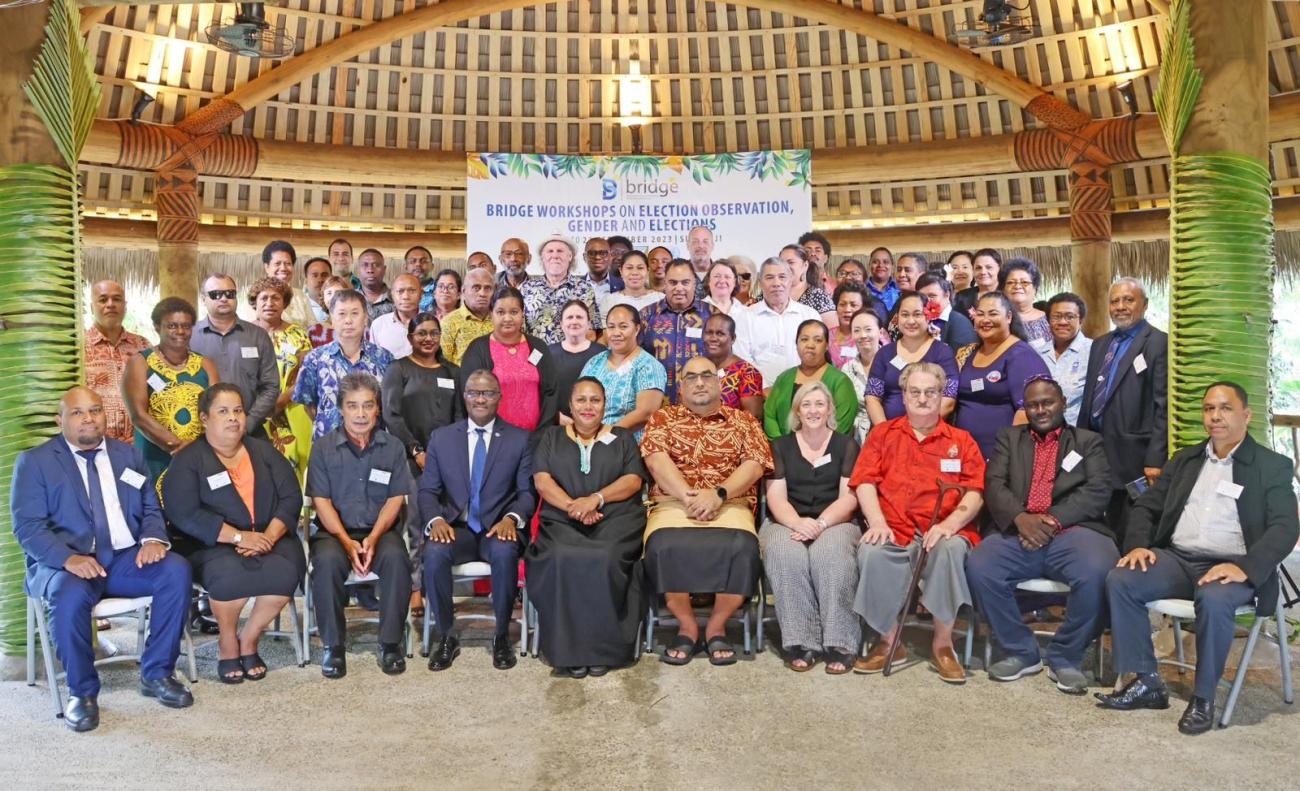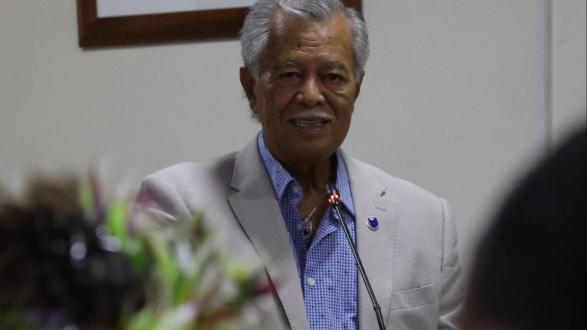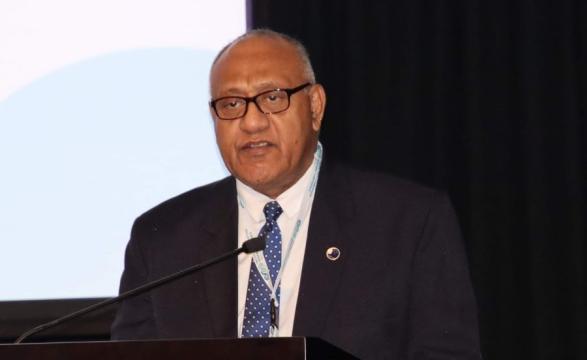"We embrace good governance, the full observance of democratic principles and values, the rule of law, the defence and promotion of all human rights, gender equality, and commitment to just societies"
2050 Strategy for the Blue Pacific Continent
On this page
Good Governance
Forum Leaders have consistently articulated the importance of good governance for the region and the vital contribution it makes to sustainable development and economic growth. Historically, as a Forum of newly independent states, broad issues of governance have been an integral component of the Forum fabric since its beginning in 1971.
Over five decades, Forum Leaders have made a number of notable commitments to good governance as their democracies have evolved:
- The 1998 Eight Principles of Accountability
- The 2000 Biketawa Declaration
- The 2003 Forum Principles of Good Leadership
- The 2014 Framework for Pacific Regionalism
- The 2019 Boe Declaration
- The 2020 Teieniwa Vision; and
- The 2050 Strategy for the Blue Pacific Continent and 2050 Implementation Plan.
The Forum Secretariat is working with regional governance and integrity building institutions and stakeholders to further strengthen governance in the Blue Pacific.

Pacific Islands Forum Election Observation
Forum election observer missions are carried out under the 2000 Biketawa Declaration and other relevant regional and international commitments.
The objective of Forum Election Observation Missions is to:
- act as an independent source of analysis regarding the conduct and integrity of a Forum Member’s election process;
- ensure the confidence of voters, candidates and stakeholders during an election;
- offer expert recommendations on how the electoral process might be improved;
- facilitate the sharing of experiences and knowledge between Forum Electoral Management Bodies (EMBs); and
- provide a practical demonstration of the Forum’s support for good governance, democracy and human rights at the political and community levels.
Since 2001, the Forum has fielded 40 observer missions. In addition to these, the Forum has participated in the Multinational Observer Group at Fiji’s 2018 and 2022 General Elections and also observed the 2017 Indonesia Provincial Elections, in West Papua (Papua).
Anti-Corruption Under the Teieniwa Vision
Corruption includes bribery in the public sector, trading in influence, abuse of functions, illicit enrichment and obstruction of justice.
Corruption undermines democracy and the rule of law, it allows organized crime and it diverts much-needed development funds away from basic services and infrastructure. This contributes to inequality, injustice and poverty in our region.
Through the Teieniwa Vision the Pacific has committed to addressing corruption through measures such as implementing anti-corruption practices in the public service, private sector and communities.
To support this work, the United Nations Office on Drugs and Crime (UNODC) provides valuable anti-corruption resources including manuals and toolkits. These resources guide civil servants and the public, offering practical insights and strategies for preventing and combating corruption. Read more:
On the 5th of February 2020, as the then Prime Minister of the Cook Islands, I was part of a Pacific-wide anti-corruption meeting in Tarawa, chaired by President Taneti Mamau. In our discussions we kept coming back to the one of the core challenges confronting regional security and solidarity – indeed, the very future of our Blue Pacific.
Corruption in all its forms and across all parts of our communities has beset the governance and government agenda from the founding days of our nations, threatening peace and security, unity, and rule of law. We had the Biketawa and Boe declarations in mind, and global anti-corruption commitments to also guide us. We ended our two-day session on a high note, endorsing an exciting vision for ways to achieve a Pacific free of corruption.
A region where integrity, transparency and good governance are reaping benefits for all our people, across all our islands. This is the vision of Teieniwa.
Regional Governance
Smaller Island States
In 1991, the then South Pacific Forum recognised the special development needs of the Smaller Island States and on 16-17 January 1992, the Inaugural Summit of the Smaller Island State Leaders was held in Rarotonga, Cook Islands.
The Smaller Island States (SIS) of the Pacific Islands Forum represent the most vulnerable of Forum Island Countries:
the Cook Islands, Federated States of Micronesia, Kiribati, Nauru, Niue, Palau, Republic of the Marshall Islands, and Tuvalu.
Against a background of ‘unique and particular’ vulnerabilities linked to their small size, lack of natural resources, and remoteness, SIS face a range of development challenges that limit their capacity to ensure resilience and long-term sustainable development.
Organisation of African, Caribbean and Pacific States (OACPS)
The ACP states are the countries in the Pacific region that are part of the larger Organisation of African, Caribbean and Pacific States (OACPS). These countries share common interests and collaborate on various economic and development initiatives:
Fiji, Kiribati, Papua New Guinea, Solomon Islands, Tonga, Tuvalu, Vanuatu and Western Samoa.
These nations engage in partnerships with the European Union and work toward sustainable development.



